Most "Peaty" ways to recover
-
Where there any specific ways in which Ray said to recover or any tips?
-
Basically everything Peat says to keep the metabolism healthy is good for bringing the body back to that state after training, with the exception of aspirin, which is considered to be detrimental to gains due to its effect on prostaglandins.
In particular, I like to drink plenty of low-fat or skim milk/kefir after a workout, use red/infrared light (sun is better) and finish with a buteyko/CO2 bath.
CO2 seems to be a great addition post-workout, as it increases the number of mitochondria (PGC-1α), angiogenesis (VEGF) and O2 availability to the tissues.
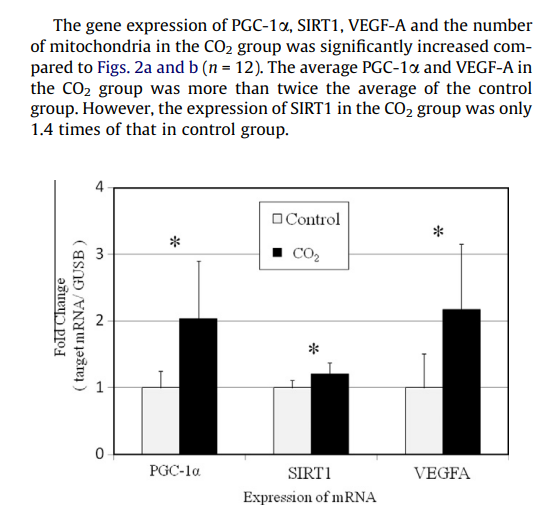
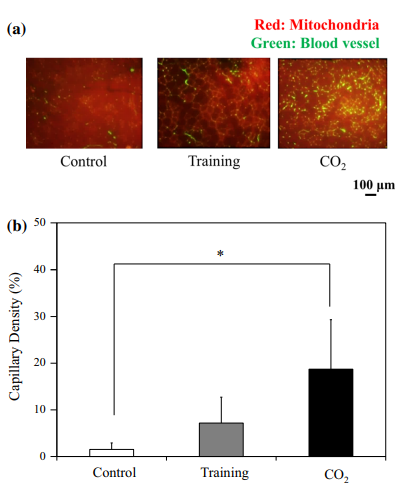
-
How do you get CO2 in? Do you just do bag breathing?
-
I usually control my breathing and do a few breath holds, maintaining between 85~90% SpO2 for a few minutes, I know it's not the best way to measure hypercapnia, but it's the most practical for me. Bag breathing is one option, a CO2 bath is another.
For a more localized effect, those who are more creative can create a "homemade paste" of CO2 (paste/hydrogel, baking soda and some acid) and seal the desired area for a few minutes. Animal studies have shown good results from doing this for 10 minutes over a few days.
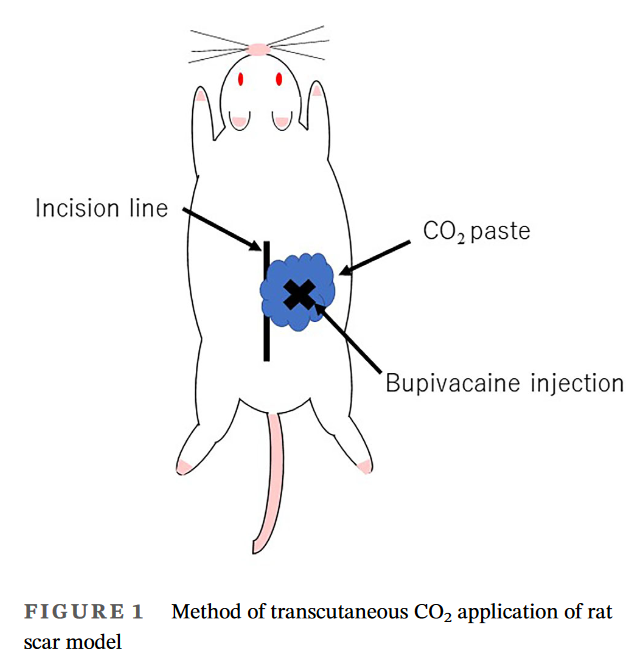
In conclusion, our study demonstrates that the CO2 paste prevents excessive scarring and accelerates muscle regeneration. This may be due to the induction of an artificial Bohr effect, which leads to the upregulation of MyoD and myogenin, and the downregulation of IL-1β, IL-6, and TGF-β. The CO2 paste is inexpensive and non-invasive. Therefore, it may be the treatment of choice for patients with muscle damage. Further research should be conducted to confirm our findings.
@brad bloo co2 paste when
-
@TexugoDoMel We'll work on it
-
cool studies. thanks
Sounds like gel can also be used to enhance absorption of co2 through bag bathing (where usually water does that in baths) , so can apply it somewhere to enhance a local area effect
{they used glycerin aka glycerol as part of the gel in one of the studies. which should be safe topically as endogenous compound}
Gel only: The CO2 paste was obtained from CO2Tech (Kobe, Japan) and contained 1,3‐butylene glycol, sodium hydrogen carbonate (bicarb), malic acid, sodium dihydrogen phosphate, alkyl‐modified carboxyvinyl polymer, and carboxyvinyl polymer
Because of its relatively high solubility, CO2 gas dissolves in the hydrogel. The dissolved CO2 then permeates the skin, moving down its concentration gradient when the maximum solubility in the hydrogel is reached. Our previous study showed that CO2 penetrated human tissue by this system {more than bag bathing without the gel?}
-
transcutaneous CO2 absorption-accelerating hydrogel, (Formulation: carbomer (0.65%), glycerin (5.00%), sodium hydroxide (0.18%), sodium alginate (0.15%), sodium dihydrogen phosphate (0.15%), methylparaben (0.10%), and deionized water (balance))
-
In this system, the CO2 hydrogel is applied to the skin to allow CO2 to dissolve and penetrate into the local tissue, which humidifies the skin without bathing, thereby forming a passage for CO2 to reach the local tissues. This system allows for the easy application of CO2 to any site of the body.
-
When we applied CO2 transcutaneously using this system, sweating and redness of the skin were noted. In addition, the blood flow to the fingers increased
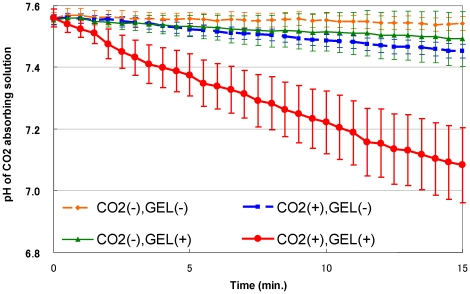
https://www.ncbi.nlm.nih.gov/pmc/articles/PMC3169585/
this one just using co2 in water for 10 mins daily gave nice results for restoring blood flow & vessels (but not systemic effect, local to limbs used on)
https://www.ahajournals.org/doi/10.1161/01.CIR.0000159329.40098.66
, amazing for just 10 minutes daily , 1g co2 per liter of water (get that from 2g bicarb + 2.5g citric acid)
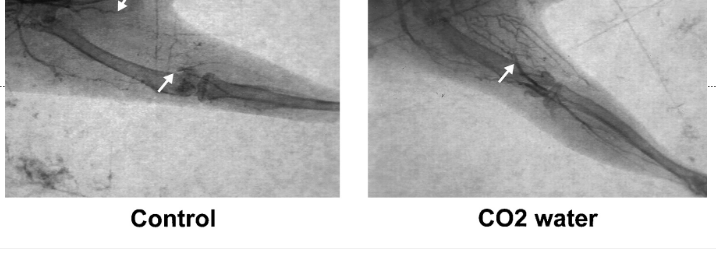
-